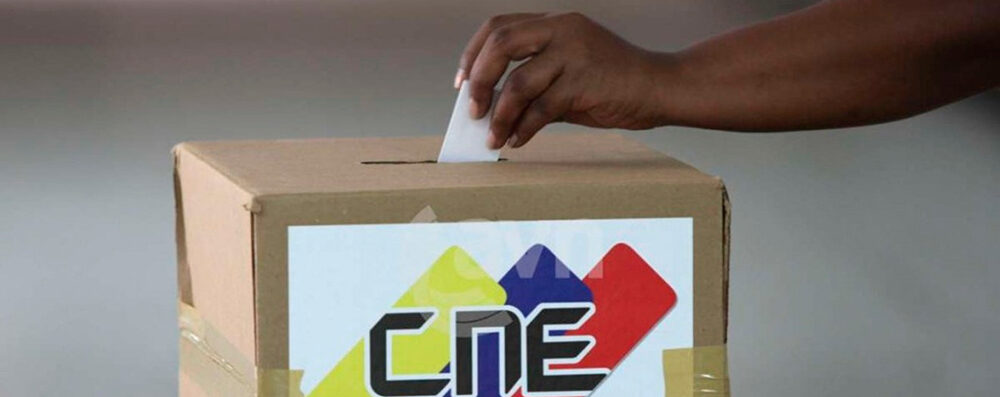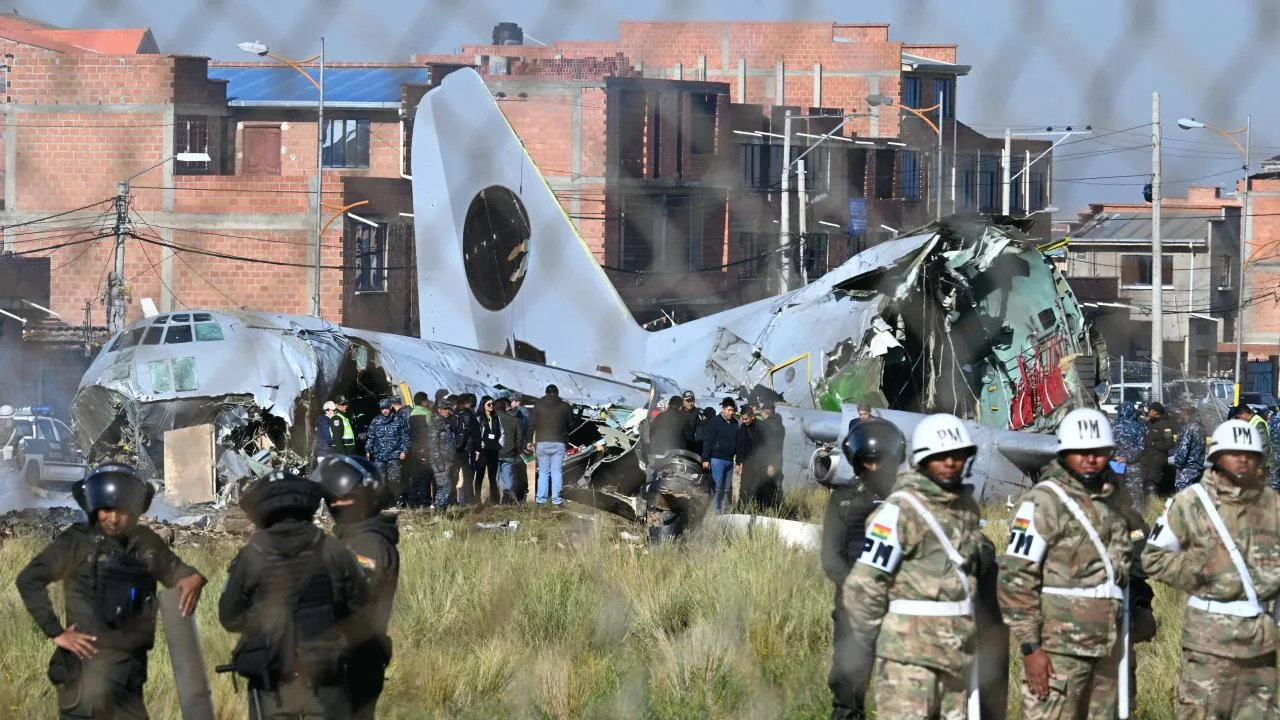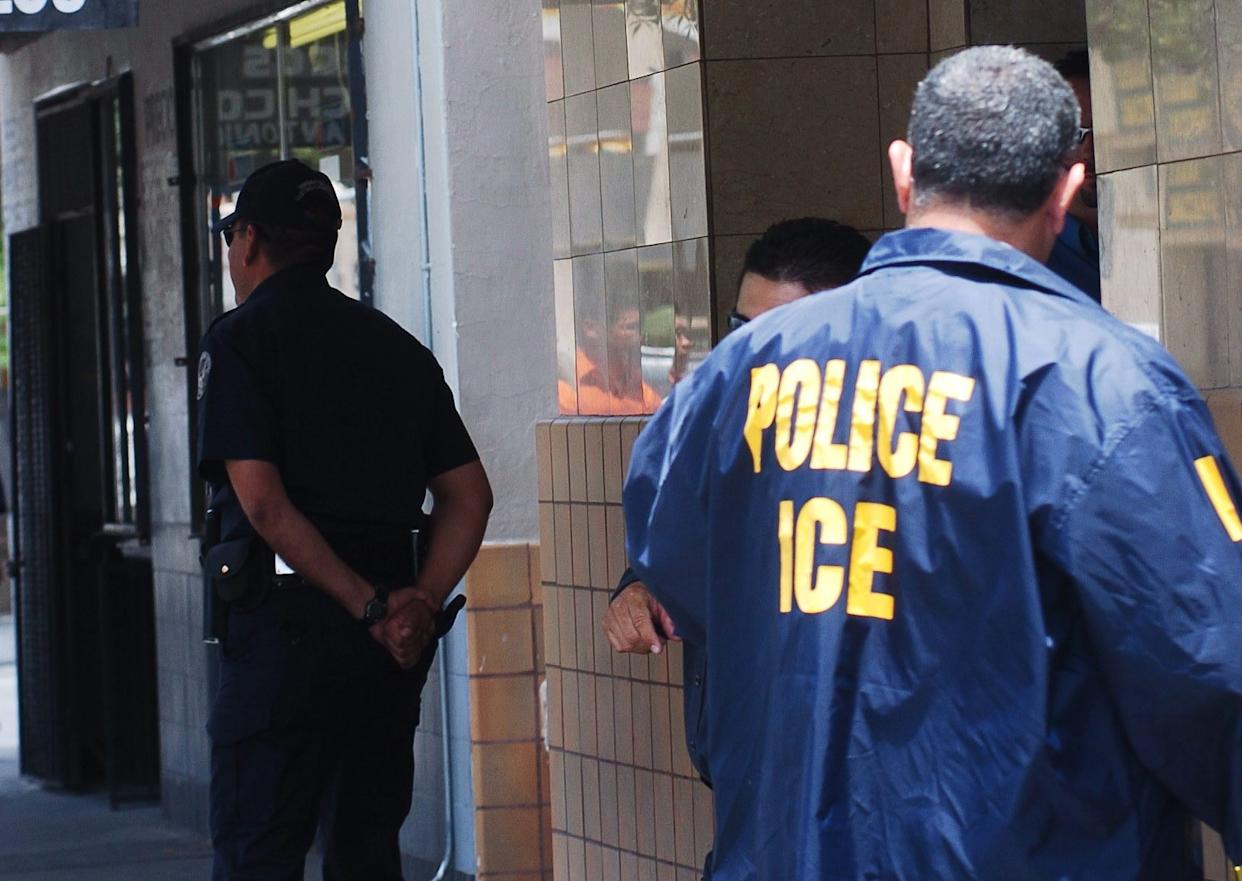International
In shift, Venezuela opposition takes part in vote as foreign teams observe

AFP
With opposition parties participating for the first time since 2017 and European Union observers returning, Venezuela’s Sunday elections represent an early contest for power between the government and rivals in a country mired in economic crisis.
An estimated 21 million Venezuelans will be going to the polls to elect 23 state governors, as well as the mayors and council members of hundreds of cities.
Polling stations opened at 6:00 am (2200 GMT) for 12 hours, with results expected around “two or three in the morning,” a source with the National Electoral Council said.
Lines formed early.
“I’ve come to exercise my right to vote in a democratic country,” 74-year-old Jose Casanova, a militant leftist, said after casting his ballot in a working-class neighborhood in eastern Caracas.
He considers Venezuela “a blessed country despite all its problems.”
Leftist President Nicolas Maduro, whose deeply controversial presidency has left the South American nation facing punishing economic sanctions, has been seeking a measure of relief through careful shows of goodwill and democratic intention.
The opposition, which had boycotted elections for the past three years saying they were neither free nor fair, agreed to take part in Sunday’s votes after receiving assurances from the government.
Opposition leaders hope to raise their profile and gain momentum ahead of presidential elections set for 2024.
But there seems little doubt about the outcome: experts predict the Chavist movement that Maduro has led since the death of President Hugo Chavez in 2013 should easily prevail over a divided opposition.
– Limited opposition gains –
Henrique Capriles, who lost presidential elections both to Chavez in 2012 and to Maduro a year later, said the opposition’s division will undeniably weigh on it.
“Let’s be honest,” he said: “The PSUV (the governing Socialist Party) is going to win.”
Observers say the opposition stands to win in six states at most: Tachira, Zulia, Lara, Nueva Esparta, Sucre and Anzoategui.
Caracas seeks a loosening of economic sanctions — notably from the United States, which does not recognize Maduro’s presidency — hoping at least for a partial lifting of the measures, said Oswaldo Ramirez, a consultant.
With hundreds of millions of dollars of its funds frozen abroad, Venezuela wants to be able to sell its petroleum more easily — the US historically is its biggest customer — and to end limits on imports.
The government has made a calculated series of concessions, opening negotiations with the opposition, and inviting election observers from the EU, the United Nations and the US-based Carter Center.
The EU is sending its first observer mission in 15 years, as Caracas — long prickly about its “sovereignty” — has had to swallow its pride.
“The regime needs this mission” to give its election credibility, one opposition member said.
After sitting out the 2018 presidential election and 2020 legislative votes, the opposition dropped its boycott strategy but has failed to agree on candidate lists.
Juan Guaido, who is recognized by the US and some 50 other countries as Venezuela’s president after the disputed 2018 election, has said the opposition must “unify the struggle.”
But he said he will not vote, and that “it is certain that Maduro is, and will continue to be, illegitimate.”
Maduro, clearly relishing the opposition’s division, has called for “a great election so that this will be a great victory for democracy.”
International
Bolivia Orders Three Investigations Into Deadly Military Plane Crash

Bolivia’s Defense Minister Marcelo Salinas announced Monday that three separate investigations will be conducted into Friday’s crash of a military cargo aircraft at El Alto International Airport, near La Paz, which left at least 22 people dead.
The Hercules aircraft, operated by the Fuerza Aérea Boliviana (FAB), was transporting cash intended for the Central Bank of Bolivia when it overshot the runway after landing from the city of Santa Cruz. The plane reportedly traveled nearly one kilometer beyond the airport perimeter.
The incident sparked chaotic scenes, with individuals attempting to collect scattered banknotes. Authorities detained 51 people in the aftermath, and the government declared three days of national mourning.
Multiple Investigations Underway
The first inquiry is being led by a military board from the Bolivian Air Force, which has already taken custody of the aircraft’s black box for analysis.
Minister Salinas said two additional investigations will follow — one conducted by the insurance company and another by the aircraft’s manufacturer.
“At least two more investigations will come, that of the insurance company and that of the aircraft manufacturer,” Salinas said during a press conference in Santa Cruz.
He cautioned that the investigative process could take between three and six months, noting that the black box cannot be opened in Bolivia due to the lack of specialized laboratories for analysis.
Awaiting Official Findings
Salinas stressed that the FAB investigative board is the highest authority in the case and urged the public to wait for its conclusions to avoid speculation about the causes of the crash.
He also confirmed that the government has contacted the families of the 22 victims and the 37 injured, as well as the owners of 15 damaged vehicles, to coordinate procedures with the insurer and cover the corresponding expenses.
International
Mexico Calls for Immediate Probe After National Dies in ICE Custody

Mexico’s Secretaría de Relaciones Exteriores (SRE) on Monday called on U.S. authorities to conduct an “immediate and thorough” investigation into the death of a Mexican national while in custody of U.S. Immigration and Customs Enforcement (ICE) at a processing facility in California.
In a statement, the Mexican government described the death as “regrettable” and urged U.S. officials to clarify the circumstances surrounding the case in order to “determine responsibilities and ensure that such events do not happen again.”
Death at Adelanto Processing Center
According to available information, the Mexican citizen died at the Adelanto Processing Center in California while under ICE custody. Authorities have not yet released the individual’s identity or the cause of death.
Following the incident, Mexico’s Foreign Ministry formally requested “detailed information” from U.S. authorities, including the detainee’s medical records and custody reports.
Consular Assistance Activated
The Mexican Consulate in San Bernardino, California, has activated consular assistance protocols to provide ongoing support to the deceased’s family. Officials have contacted relatives to express condolences and offer legal guidance, as well as assistance with the necessary procedures to repatriate the remains.
“The handling of situations like this and the establishment of mechanisms to resolve them are priorities for the Government of Mexico,” the Foreign Ministry said, adding that it will formally request an investigation into any systemic conditions that may have contributed to such incidents.
Local Mexican media reported that seven Mexican nationals died while in ICE detention last year — the highest number recorded since the agency was created.
International
Anti-ICE Billboard Campaign Targets Immigration Spending in 31 U.S. Cities

More than 200 billboards criticizing U.S. Immigration and Customs Enforcement (ICE) began appearing Monday in 31 cities across the United States, including Miami, as part of a campaign highlighting the high cost of immigration enforcement operations for taxpayers.
The initiative, titled “ICE Costs Us,” was launched by the civil rights organization Mijente and will run for four weeks.
Criticism of Spending and Enforcement Tactics
The billboards feature images of ICE agents during arrests or carrying military-style weapons. According to the organization, spending on military-grade equipment for the agency has increased by 600 percent in recent years.
Several signs display messages such as:
“Your taxes are being wasted” and “ICE’s cruelty costs you $28 billion,” referring to the agency’s annual budget.
In a statement, Marisa Franco, co-founder of the Mijente Support Committee, said:
“For too long, our government has prioritized building cages and investing billions in an immigration enforcement apparatus that has left families torn apart and communities terrified.”
She added that “Millions of Americans are living paycheck to paycheck, yet this violent agency continues operating with a blank check. These decisions do not make us safer nor improve our economic security. Our billboards highlight these choices and demand a different path.”
Budget Debate and Medicaid Comparison
The campaign also draws a comparison between ICE’s funding and the estimated 17 million people who could lose health coverage under Medicaid due to federal budget cuts under President Donald Trump.
Other billboard messages seen in various cities include:
“They get billions to beat us; we get layoffs and rising rents” and “Funding ICE is a fast track to fascism.”
Organizers say the goal is to spark public debate about the allocation of federal funds for immigration enforcement and the broader economic and social impact of such policies on communities nationwide.
-

 International4 days ago
International4 days agoCocaine Production Surges 34% in 2023 as Market Expands into Africa and Asia
-

 International3 days ago
International3 days agoTrump Floats “Friendly Takeover” of Cuba Amid Rising Tensions
-

 Sin categoría2 days ago
Sin categoría2 days agoTrump: ‘We Think It’s True’ Amid Claims Iran’s Supreme Leader Was Killed
-

 International2 days ago
International2 days agoSecurity Council to Hold Emergency Meeting on Middle East Crisis
-

 International1 day ago
International1 day agoIran Reports 201 Dead, 747 Injured After U.S. and Israeli Strikes
-

 International4 days ago
International4 days agoFederal Judge Blocks Trump Policy Allowing Deportations to Third Countries
-

 International3 days ago
International3 days agoArgentina’s Senate Reviews Milei-Backed Labor Overhaul
-

 International1 day ago
International1 day agoPope Leo XIV Urges End to ‘Spiral of Violence’ in Middle East
-

 International4 days ago
International4 days agoClinton Accuses Republican Committee of Using Epstein Case to Shield Trump
-

 International2 hours ago
International2 hours agoAnti-ICE Billboard Campaign Targets Immigration Spending in 31 U.S. Cities
-

 International2 hours ago
International2 hours agoBrazil’s Supreme Court Rejects Bolsonaro’s Bid for House Arrest
-

 International2 hours ago
International2 hours agoTrump Warns of ‘Major Wave’ of Attacks as Iran Conflict Escalates
-

 International2 hours ago
International2 hours agoMexico Calls for Immediate Probe After National Dies in ICE Custody
-

 Central America2 hours ago
Central America2 hours agoPanama Canal Monitoring Trade as Middle East Conflict Disrupts Shipping
-

 International2 hours ago
International2 hours agoBolivia Orders Three Investigations Into Deadly Military Plane Crash




























